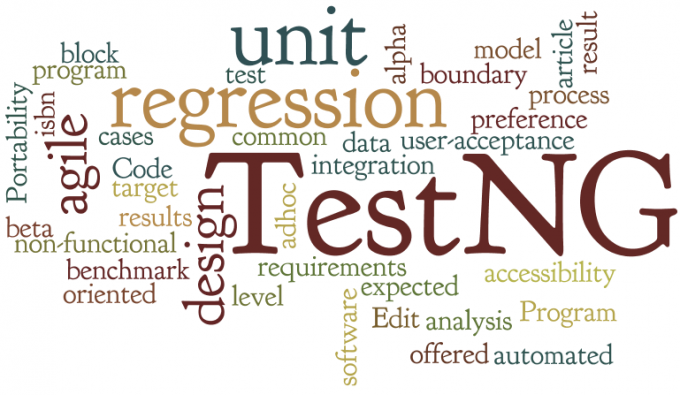Get 30 minute iPhone repair with Puls! Schedule your repair now!
Most programmers spend a lot of time debugging Java code. To those assistance of the developers, there are Numerous robotized testing tools and frameworks accessible in the showcase. These tools can significantly improve the Java development workflow. However, for this journal, we have narrowed down the Java testing tools and frameworks list to the most used and popular ones. The rundown will be In light of the reviews of a few best java developers we as of late talked will. However, we might miss out on some your own favorite Java testing tool. If in case we have missed any, please do help us out in commenting out the same.
You will need a IDE (Integrated Developer Environment) for your Java development and for using testing tools more efficiently.
Java Testing Tools and Frameworks
JUnit
The best known testing framework designed for the Java Programming language. JUnit has played an important role in the development of test-driven development frameworks.
JUnit is linked as a JAR at compile-time and can be used to write repeatable tests. It possesses several valuable features such as annotation and assertions. Due to its simplicity, unit tests are run quickly with instant results via a red/green progress bar.
JWalk
JWalk is a Java testing tool that relies on Lazy, Systematic Unit Testing.The JWalk tools can be used right from the outset, as soon as a prototype class has been compiled. The featured JWalkTester tool performs bounded exhaustive testing of any compiled Java class, supplied by the programmer. It tests to full conformance to a lazy specification, which is inferred on-the-fly from the code, by static and dynamic analysis, and from hints supplied by the programmer.
The advantage of JWalking over others is that the tool can automatically infer the test cases that the programmer needs to supply. The tools construct and present these test cases automatically, saving the programmer time and effort.
Arquillian
Arquillian is an integration testing framework for Integration and Functional testing of Java. It is a highly innovative and extendible testing platform for JVM that allows developers to easily create automated integration, functional and acceptance tests for Java. Arquillian allows you to run test in the run-time so you don’t have to manage the run-time from the test (or the build).
Arquillian integrates with familiar testing frameworks such as JUnit 4, TestNG 5 and allows tests to be launched using existing IDE, and because of its modular design it is capable of running Ant and Maven test plugins.
The Grinder
The Grinder is a framework for running test scripts across a number of machines. In other words we can say that it makes it easy to run a distributed test using several load injector machines. All test scripts are written using a dynamic scripting language. The framework is comprised of three types of process (or program): worker processes, agent processes, and the console.
Test scripts are written using a dynamic scripting language, and specify the tests to run. The default script language is Jython, a Java implementation of the popular Python language. Support for Clojure as an alternative script language was introduced in version 3.6.
It can test anything that contains Java API such as HTTP web servers, SOAP and REST web services, application servers and custom protocols. The mature HTTP supports automatic connection of client, cookies, SSL and connection throttling. Also, the graphical console allows multiple load injectors to be monitored and controlled.
TestNG

TestNG designed for the Java programming language is a testing framework inspired by JUnit and NUnit. Like other tools, it supports unit, functional, end-to-end and integration testing. On top of JUnit and NUnit, it introduced some new functionality that make it more powerful and easier to use, such as:
- Annotation
- Run your tests in arbitrarily big thread pools with various policies available (all methods in their own thread, one thread per test class, etc…).
- Test that your code is multithread safe.
- Flexible test configuration.
- Support for data-driven testing (with @DataProvider).
- Support for parameters.
- Powerful execution model (no more TestSuite).
- Supported by a variety of tools and plug-ins (Eclipse, IDEA, Maven, etc…).
- Embeds BeanShell for further flexibility.
- Default JDK functions for runtime and logging (no dependencies).
- Dependent methods for application server testing.
TestNG is designed to cover all categories of tests: unit, functional, end-to-end, integration, etc. It is supported by a variety of tools and plug-ins such as Eclipse, IDEA, Maven, etc.
Mockito
An open source framework under MIT license, is one of the most famous mocking frameworks for Java. It lets you write beautiful tests with a clean & simple API. Mockito doesn’t give you hangover because the tests are very readable (well documented) and they produce clean verification errors.
Mockito library enables mocks creation, verification and stubbing. You’ll need to declare a dependency on “mockito-core” library using your favorite build system.
HTMLUnit
HtmlUnit is a “GUI-Less browser for Java programs” and is widely used for Integration testing. It models HTML documents and provides an API that allows you to invoke pages, fill out forms, click links, etc… just like you do in your “normal” browser.
HTMLUnit has fairly good JavaScript support (which is constantly improving) and is able to work even with quite complex AJAX libraries, simulating Chrome, Firefox or Internet Explorer depending on the configuration used.
It is typically used for testing purposes or to retrieve information from web sites.
HtmlUnit is not a generic unit testing framework. It is specifically a way to simulate a browser for testing purposes and is intended to be used within another testing framework such as JUnit or TestNG.
JwebUnit
JWebUnit is a Java-based testing framework for web applications. It wraps existing testing frameworks such as HtmlUnit and Selenium with a unified, simple testing interface to allow you to quickly test the correctness of your web applications. This framework is used for functional, Regression and Integration testing of web applications.
JWebUnit provides a high-level Java API for navigating a web application combined with a set of assertions to verify the application’s correctness. This includes navigation via links, form entry and submission, validation of table contents, and other typical business web application features.
As a programmer, you must have used any one of the testing tools and frameworks. In case that you think we have missed out any one of your favorites, please do share your views about them in the comment box below. Your suggestions are vital for all our readers and not to forgot for us also.
Get 30 minute iPhone repair with Puls! Schedule your repair now!

